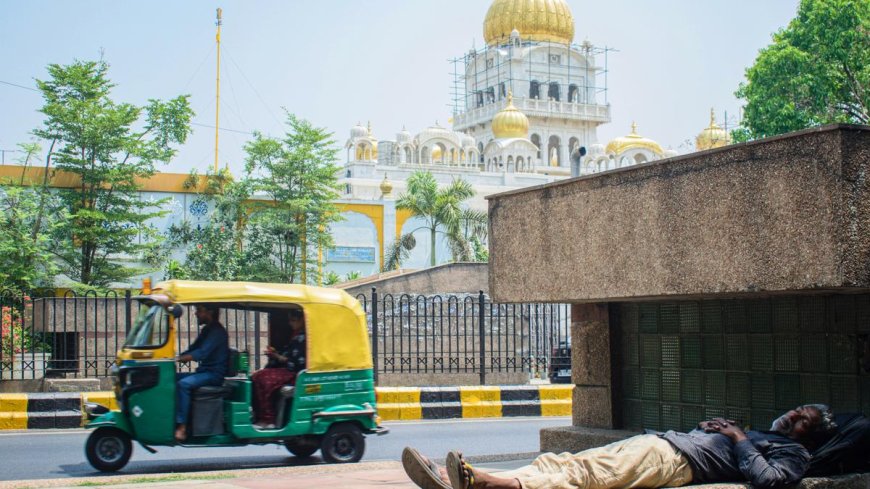Indian summers are getting hotter, but is it the heat or is it us?

Indian Summers Are Getting Hotter, But Is It the Heat or Is It Us?
Breaking News, Daily Updates & Exclusive Stories - asarkari
As the mercury rises across the subcontinent, the dire consequences of climate change are becoming more apparent every summer. The question many are asking is not just about the increasing temperatures but also about the relationship between human actions and these extreme weather patterns. This article delves into the dynamics of India’s increasingly hot summers, exploring both traditional practices and modern scientific innovations that can help us adapt.
Bearing the Brunt of Climate Change
Recent climate reports suggest that Indian summers are expected to get hotter in the coming years, pushing temperatures beyond the norms. Local weather patterns showcase a worrying trend: a rise in average temperatures during the summertime, leading to health hazards, erratic monsoons, and severe droughts. The Indian Meteorological Department (IMD) has issued warnings about extreme weather events becoming a frequent occurrence, signaling a call for immediate action.
The Impact of Urbanization and Industrialization
One cannot overlook the role of rapid urbanization and industrialization in elevating summer temperatures. The increasing number of vehicles, concrete structures, and industries contribute to the urban heat island effect, making city landscapes significantly warmer than their rural counterparts. Studies have shown that metropolitan areas like Delhi and Mumbai experience up to 5°C higher temperatures than nearby rural locations, showcasing the urgent necessity to embrace sustainable urban planning.
Adapting Through Tradition and Technology
In the face of these rising temperatures, India’s rich heritage of traditional practices offers a valuable counterbalance to modern challenges. Techniques such as rainwater harvesting and community-driven agriculture have stood the test of time and can be integrated with contemporary scientific approaches to create an adaptive strategy. Moreover, local wisdom offers insight into effective cooling methods, using eco-friendly materials in construction and culturally established practices such as Ayurveda for maintaining body temperature.
With advancements in technology, there is also a growing emphasis on using innovative methods to combat heat. The rise of green technology in energy generation, coupled with efficient waste management systems, can contribute to mitigating climate change impacts. Government initiatives aimed at promoting renewable energy and incentivizing sustainable practices can enhance resilience against the wrath of soaring temperatures.
What Lies Ahead?
As we reflect on the future, the challenge remains not only about adapting to more severe heat but also about fostering a symbiotic relationship between tradition and modern science. Researchers advocate for the need to develop policies that promote the amalgamation of traditional ecological knowledge with new scientific findings, helping communities withstand extreme weather. The collaboration could forge pathways toward resilience and sustainability, improving public health and safeguarding livelihoods.
Conclusion
In conclusion, while Indian summers are undoubtedly getting hotter, the situation calls for collective responsibilities from individuals, governments, and organizations. By harnessing the wisdom of our ancestors along with cutting-edge scientific discoveries, we can prepare for the hottest years ahead, ensuring that the impact of climate change is cushioned and managed effectively. It is an era that demands not just adaptation but proactive engagement in climate stewardship, ensuring a sustainable future for generations to come.
For more updates, visit asarkari.com.
Keywords:
Indian summers, climate change, heat waves, urban heat island, traditional practices, renewable energy, sustainability, eco-friendly, adaptation strategies, public health.What's Your Reaction?
 Like
0
Like
0
 Dislike
0
Dislike
0
 Love
0
Love
0
 Funny
0
Funny
0
 Angry
0
Angry
0
 Sad
0
Sad
0
 Wow
0
Wow
0










































